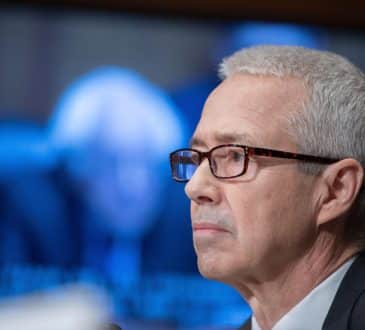Report: These Are The Countries with Universal Health Coverage Programs, 2024

Access to high-quality and affordable healthcare services has been a persistent issue in many countries. According to data from the World Health Organization (WHO), half of the world’s population lacks access to the healthcare solutions they need. However, as of 2024, many countries have implemented universal healthcare systems financed by their governments. This program, known as universal health coverage (UHC), addresses the long-standing problem by providing over 90 percent of a country’s citizens with accessible healthcare services.
Today, many countries with some universal healthcare policies have their systems’ particular execution vastly differing. CEOWORLD magazine’s researchers intend to enlighten readers about these mechanisms. In this latest article, readers will discover all countries with universal healthcare systems. They’ll also find out about how certain countries implement their policies.
What is Universal Health Coverage (UHC)?
According to the WHO, universal health coverage (UHC) is a government-regulated system in which all people can avail of the full array of quality healthcare services they need. It allows individuals to access these solutions anywhere and anytime they require them. Moreover, UHC means that people can get the medical attention they need without having to suffer financial difficulties when settling their transactions. As UHC serves every citizen, it includes a complete set of essential healthcare services. These cost-effective and high-quality solutions consist of palliative care, health promotion, rehabilitation, medical treatment, and disease prevention.
Which countries have universal healthcare systems?
As of 2024, 72 countries had UHC. CEOWORLD magazine’s researchers discovered that the governments of these territories ensure that every person in their countries can avail of the healthcare services they require and settle their transactions seamlessly. The countries include:
Countries with Universal Health Coverage Programs, 2024
| Country | Universal Healthcare |
|---|---|
| Albania | Yes |
| Algeria | Yes |
| Argentina | Yes |
| Australia | Yes |
| Austria | Yes |
| Bahamas | Yes |
| Belgium | Yes |
| Bhutan | Yes |
| Botswana | Yes |
| Brazil | Yes |
| Bulgaria | Yes |
| Burkina Faso | Yes |
| Canada | Yes |
| Chile | Yes |
| China | Yes |
| Colombia | Yes |
| Costa Rica | Yes |
| Croatia | Yes |
| Cuba | Yes |
| Czech Republic | Yes |
| Denmark | Yes |
| Egypt | Yes |
| Finland | Yes |
| France | Yes |
| Georgia | Yes |
| Germany | Yes |
| Ghana | Yes |
| Greece | Yes |
| Hong Kong | Yes |
| Iceland | Yes |
| India | Yes |
| Indonesia | Yes |
| Ireland | Yes |
| Israel | Yes |
| Italy | Yes |
| Japan | Yes |
| Kuwait | Yes |
| Liechtenstein | Yes |
| Luxembourg | Yes |
| Macau | Yes |
| Malaysia | Yes |
| Maldives | Yes |
| Mauritius | Yes |
| Mexico | Yes |
| Morocco | Yes |
| Netherlands | Yes |
| New Zealand | Yes |
| North Korea | Yes |
| Norway | Yes |
| Pakistan | Yes |
| Peru | Yes |
| Philippines | Yes |
| Portugal | Yes |
| Romania | Yes |
| Russia | Yes |
| Rwanda | Yes |
| Serbia | Yes |
| Seychelles | Yes |
| Singapore | Yes |
| South Africa | Yes |
| South Korea | Yes |
| Spain | Yes |
| Sri Lanka | Yes |
| Suriname | Yes |
| Sweden | Yes |
| Switzerland | Yes |
| Taiwan | Yes |
| Thailand | Yes |
| Trinidad and Tobago | Yes |
| Tunisia | Yes |
| Turkey | Yes |
| United Kingdom | Yes |
Healthcare services via universal healthcare programs are quite low-cost and free of charge to all people in most cases. This scenario is regardless of the citizen’s income. For example, Germany possesses a government fund that pays for healthcare coverage, including private physicians and hospitals. The United Kingdom has a healthcare program that is completely free of charge. Government-owned facilities provide these services.
Furthermore, plenty of countries today have blended private-public healthcare systems to maximize both the scheme’s comprehensiveness and accessibility for the people. In South Korea, where the healthcare system is often touted as the optimum in the Organisation for Economic Co-operation and Development or OECD bloc, the universal healthcare system coverage is up to 60 percent of all the people’s medical costs.
77 percent of South Koreans complement this program with private insurance to cover the remaining expenditures. Meanwhile, Brazil is considered the epitome of universal healthcare. Any individual is entitled to obtain immediate medical attention free of charge. These solutions come in any form, like prescription medications, surgery, and primary care. Eligible persons in Brazil do not need to file paperwork or have previous applications.
The United Nations considers UHC a human prerogative. Its member states have committed to ensuring this right for their people by 2030 as a component of the 2030 Agenda for Sustainable Development. Additionally, the WHO recognized that wellness is a basic human right, and UHC is a method of fulfilling this prerogative. The world has about 200 countries today. Not all of them have UHC, and while it is a human right, particular mechanisms and policies for achieving it may differ across regions and countries. Additionally, to obtain UHC, countries must have robust, fair, and efficient systems deeply rooted in the communities they serve. In this manner, they can deliver on the healthcare program’s promises of premium-quality and affordable services for people from all walks of life.
Have you read?
Study: These are the Most Popular Tourist Attractions of America.
Study: Wealthiest Americans of All Time.
Revealed: The Biggest Beer Companies in the World, 2023.
Ranked: Most Popular Dog Breeds in the U.S. of 2023.
Revealed: Countries With the Highest Suicide Rates, 2023.
Ranked: These Are The Most Dangerous Jobs in the World, 2023.
Add CEOWORLD magazine to your Google News feed.
Follow CEOWORLD magazine headlines on: Google News, LinkedIn, Twitter, and Facebook.
This report/news/ranking/statistics has been prepared only for general guidance on matters of interest and does not constitute professional advice. You should not act upon the information contained in this publication without obtaining specific professional advice. No representation or warranty (express or implied) is given as to the accuracy or completeness of the information contained in this publication, and, to the extent permitted by law, CEOWORLD magazine does not accept or assume any liability, responsibility or duty of care for any consequences of you or anyone else acting, or refraining to act, in reliance on the information contained in this publication or for any decision based on it.
Copyright 2024 The CEOWORLD magazine. All rights reserved. This material (and any extract from it) must not be copied, redistributed or placed on any website, without CEOWORLD magazine' prior written consent. For media queries, please contact: info@ceoworld.biz
SUBSCRIBE NEWSLETTER








